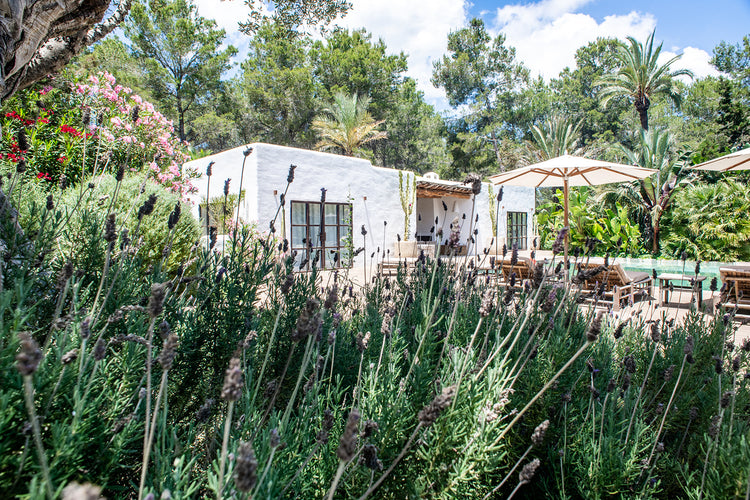
Guides
When starting the exciting process of searching for a property in The Balearics it is important to be informed of the cost implications. It is generally recommended that you allow for between 10 – 13% of the value of the property for all the buying costs, including taxes and legal fees.
As a breakdown the costs involved include:
Property Conveyance Tax (ITP) - for non-new build properties
Or
Value Added Tax (IVA) - for new build properties
Lawyers Fees
Notary Fees and Property Registry Fees
Other fees which may be applicable are Mortgage fees and Banking Costs.
Property Conveyance Tax (ITP) - valid for non-new build properties
In the Balearic Island the rate is between 4% and 13% depending on the value of the property as follows:
For first residence valued up to €270,151.20: 4%
From €270,151.20 to €400,000: 8%
From €400,001– €599,999: 9%
From €600,000– €999,999: 10%
From €1,000,000 - €1,999,999: 12%
Over €2,000,000: 13%
Value Added Tax (IVA) - valid for new build properties
If the property is newly built Property Conveyance Tax would not be applicable. Instead VAT and ADJ must be paid instead.
The rates of IVA are as follows:
10% for housing
21% for plots of land and commercial properties
Stamp Duty (AJD) is generally also paid when a property is subject to IVA at a rate of 1.5% and on properties valued at €1,000,000 or more at a rate of 2%.
Properties valued at €250,151.20 are subject to a reduced rate of 1.2%.
Lawyers Fees
We strongly advise you hire a lawyer to assist you during the buying process. A lawyer drafts and reviews contracts on your behalf and will explain all the legal and administrative issues you face. They should also carry out any necessary due diligence (checking ownership claim of the seller, charges on the property, permits, etc.) and arrange all the required documents to complete the process (property registration, tax payments, etc.). A lawyer may charge around 1% of the purchase price. This is negotiable and it can work out more cost effective for a sale without complications to be charged on an hourly basis.
Notary Fees & Property Registry Fees
These fees are dependant on the value of the property but generally do not exceed 0.5% of the purchase price.
NB This Guide is our interpretation of the regulations in Ibiza and should not replace full legal advice. The laws regularly change in Spain and we always recommend hiring a lawyer for a property purchase.
When preparing to purchase a property in The Balearics you will require the following documents. A gestoria (a professional who deals with administrative bureaucracy) can assist you with these:
Original NIE / TIE number
This is a fiscal ID number for foreign residents. We recommend that you organise this at the very beginning of your property search to avoid unnecessary delays or missing out on a property further along in the process. We can suggest a gestoria who will be able to assist you with the application for this.
A Spanish bank account
This is required to administer all payments. It is worth noting that a Spanish bank will need you to provide documents that certify the origin of the funds you will be using for the purchase.
If you are not a resident of the EU and are purchasing a property on Rural land you will also need to apply for a Military Licence. This is applied for once a sale price has been agreed and is specific to each property. Generally a lawyer would include this service in their fee.
NB This Guide is our interpretation of the regulations in The Balearics and should not replace full legal advice. The laws regularly change in Spain and we always recommend hiring a lawyer for a property purchase.
When you find the property you would like to purchase Agnes & Lorenzo will work to assist both parties to reach a suitable agreement on the sale price. When an offer has been made in writing and a sale price has been agreed these are the next steps:
Hiring a Lawyer
We strongly advise you to hire a lawyer to assist you during the buying process. A lawyer drafts and reviews contracts on your behalf and will explain all the legal and administrative issues you face. They should also carry out any necessary due diligence (checking the title deeds, consulting the land registry, seeing if there are any charges on the property, ensuring property taxes have been paid etc.) and arrange all the required documentation to complete the process (property registration, tax payments etc.).
Private Contract (Arras contract)
The lawyers will draw up a private purchase contract will be drawn up with the condition of a successful due diligence. It will contain all the relevant details such as a description of the property, the purchase price, the payment structure and the completion date. Upon signing the contract, 10% of the purchase price is normally paid as a deposit. This is usually paid directly to the sellers bank account, but can also be transferred to a Notary escrow account. Within the contract there is usually a clause stating that should the Seller decide to withdraw from the sale the Buyer is entitled to receive double the deposit as compensation and should the Buyer decide to withdraw from the sale the deposit amount is lost.
Completion and Payment
On the completion date the final signature of the Public Deed of Conveyance (Escritura de compraventa) and the payment of the balance is made at a Notary with all parties and their legal representatives present. The Buyer is then issued with the Escritura (Deed) in front of a Notary Public, who certifies the property transfer, and a copy will be passed to the Spanish Tax Office and on to the Property Registry. The rights and duties of ownership of the property covered by the agreement are transferred to the purchaser on the signature of the Deed. If it is not possible for a buyer to be in Ibiza in order to attend the Notary’s office in person, then his/her lawyer is able to use a Power of Attorney (POA) to act on their behalf.
After the Deed signing
The Notary will send a digital copy of the Deed to be registered in the appropriate Land Registry office on behalf of the purchaser. Once the copy is received, the Land Registry office will open the submission entry, which will be valid for 60 days. The purchaser is then obliged to register the dwelling in their own name within this timeframe. The purchaser is also required to pay the associated taxes: the Property Conveyance Tax – ITP (in the case of a second-hand property) or the VAT and Stamp Duty - AJD (for newly-built properties or land). The purchaser must notify the Land Registry of the change of ownership of the property within two months from the signature of the Deed. It is also necessary for the purchaser to notify the municipal council of conveyance of the property by submitting a copy of the Deed to enable the council to levy the Capital Gains Tax (Impuesto Sobre de Plusvalia in Spanish). In most cases, this notification is handled directly by the Notary office by electronic means.
NB This Guide is our interpretation of the regulations in The Balearics and should not replace full legal advice. The laws regularly change and we always recommend hiring a lawyer for a property purchase.
When you own a house in The Balearics here are the taxes you should be aware of and should discuss further with your accountant:
Property Ownership Tax (IBI)
This is a local tax on the ownership of property in Spain and is calculated on the value of the property set by the townhall. This catastral value tends to be much lower than the commercial value. IBI ranges from 0.4% to 1.1% of this value and is paid annually.
Wealth Tax
There is a threshold of €700,000 before Wealth tax is charged. If a property is in the name of 2 individuals then the threshold becomes €1,400,000. The tax rate above this threshold starts at 0.2% and increases to 2.5%.
Non-resident Income Tax (IRNR)
If you own property in Spain and are not a tax resident it is necessary to pay an annual income tax. This annual income tax is called Impuesto sobre la Renta de No Residentes. The tax rate varies depending on if the property is rented out or not.
If your property is not rented out and you do not have any other source of income in Spain you are required to pay income tax based on the catastral value of your property. The tax rate is 19% for EU residents and 24% for non-EU residents on approx 2% of the catastral value of the property.
For example the tax on a property with a catastral of €700,000 would be as follows:
Property value for tax purposes €700,000
Taxable base (2%) = €14,000
Tax (19% for non-resident) = €2,660
If you rent out your property and therefore have income from it, you are required to declare this income and pay income tax on it. If you have no other source of income in Spain you will most likely end up paying a tax rate of 19% for EU residents and 24% for non-EU residents of the income that you earn from your property in Ibiza. If you do have other sources of income in Spain the taxable base and the tax rates will be determined by your circumstances. In most cases maintenance fees, property management costs and other property-related expenses can be deducted from your taxable base.
Community Fees
If you own an apartment or terraced house within a community you may be liable to monthly or quarterly community fees. This fee may cover upkeep of common areas, maintenance and any services that any other services that the community vote for. The fees will vary according to the magnitude of the common areas, the costs of maintaining them, and the services that the community vote for.
Refuse Collection (La tasa de recogida de residuos sólidos urbanos)
This is a much smaller tax paid yearly per property, around 80€ for a 3 bedroom apartment, as an example. It covers drainage & refuse collection.
Insurance
Household insurance will vary according to the circumstances of the owner and the type of property. However it should kept in mind as a necessary cost.
NB This Guide is our interpretation of the regulations in The Balearics and should not replace full legal advice. The laws regularly change in Spain and we always recommend hiring a lawyer for a property purchase.
